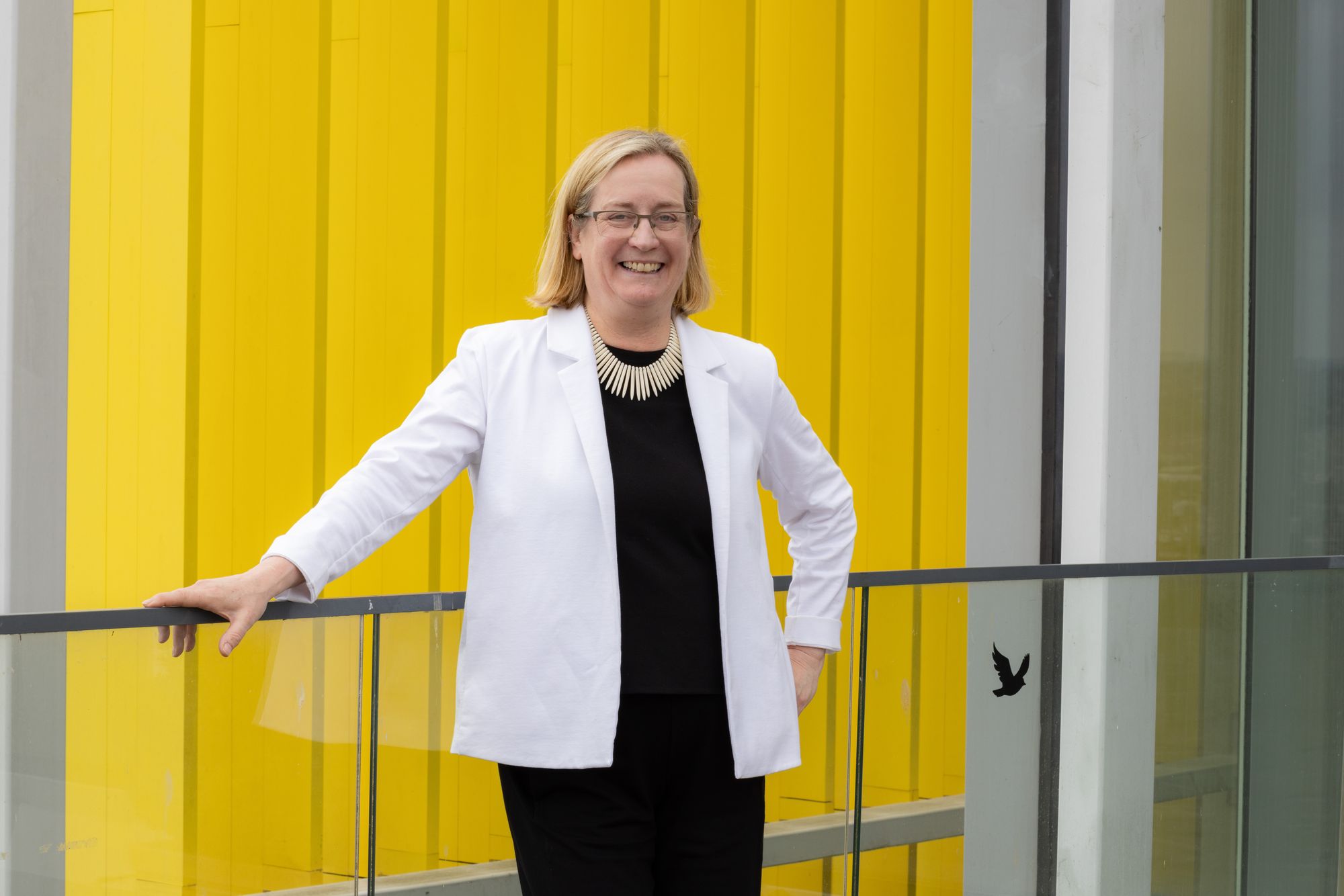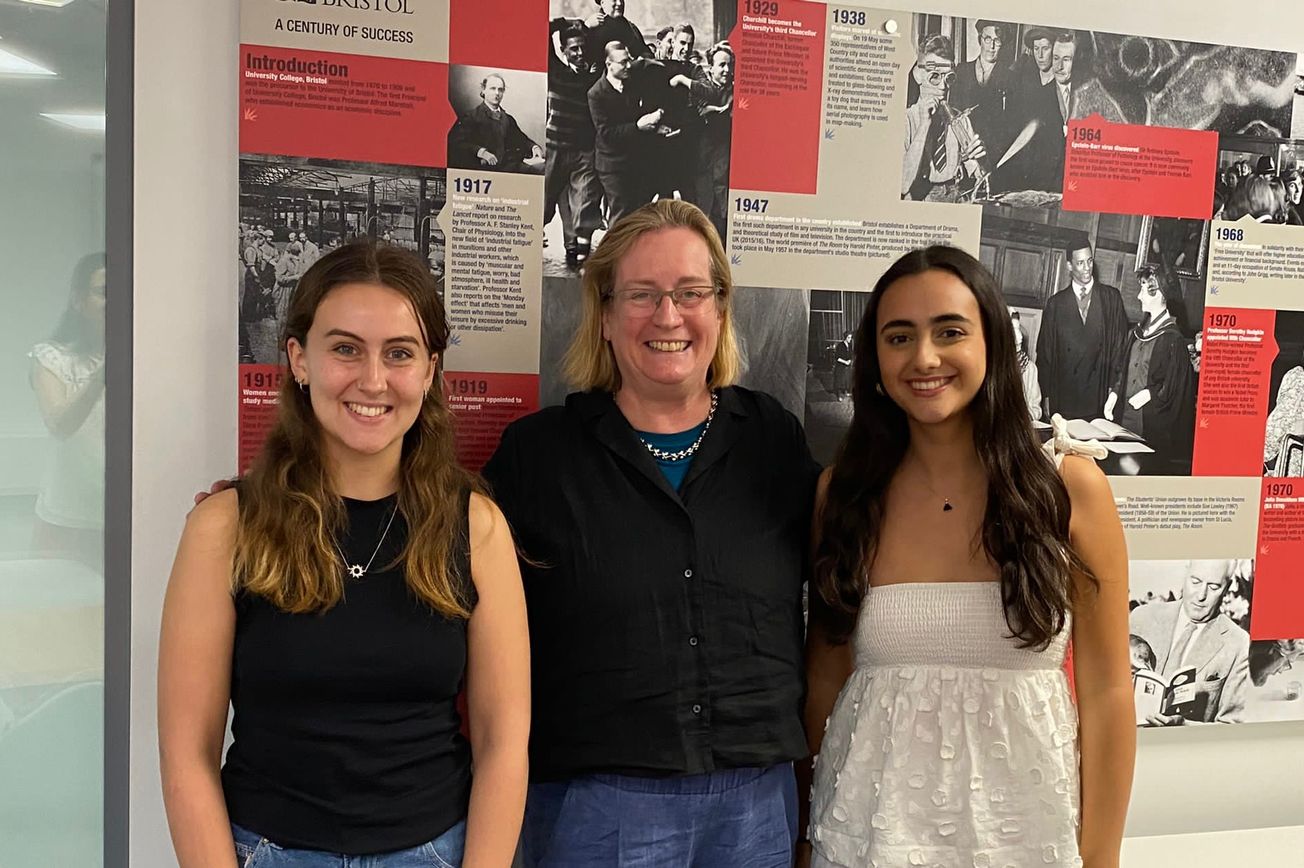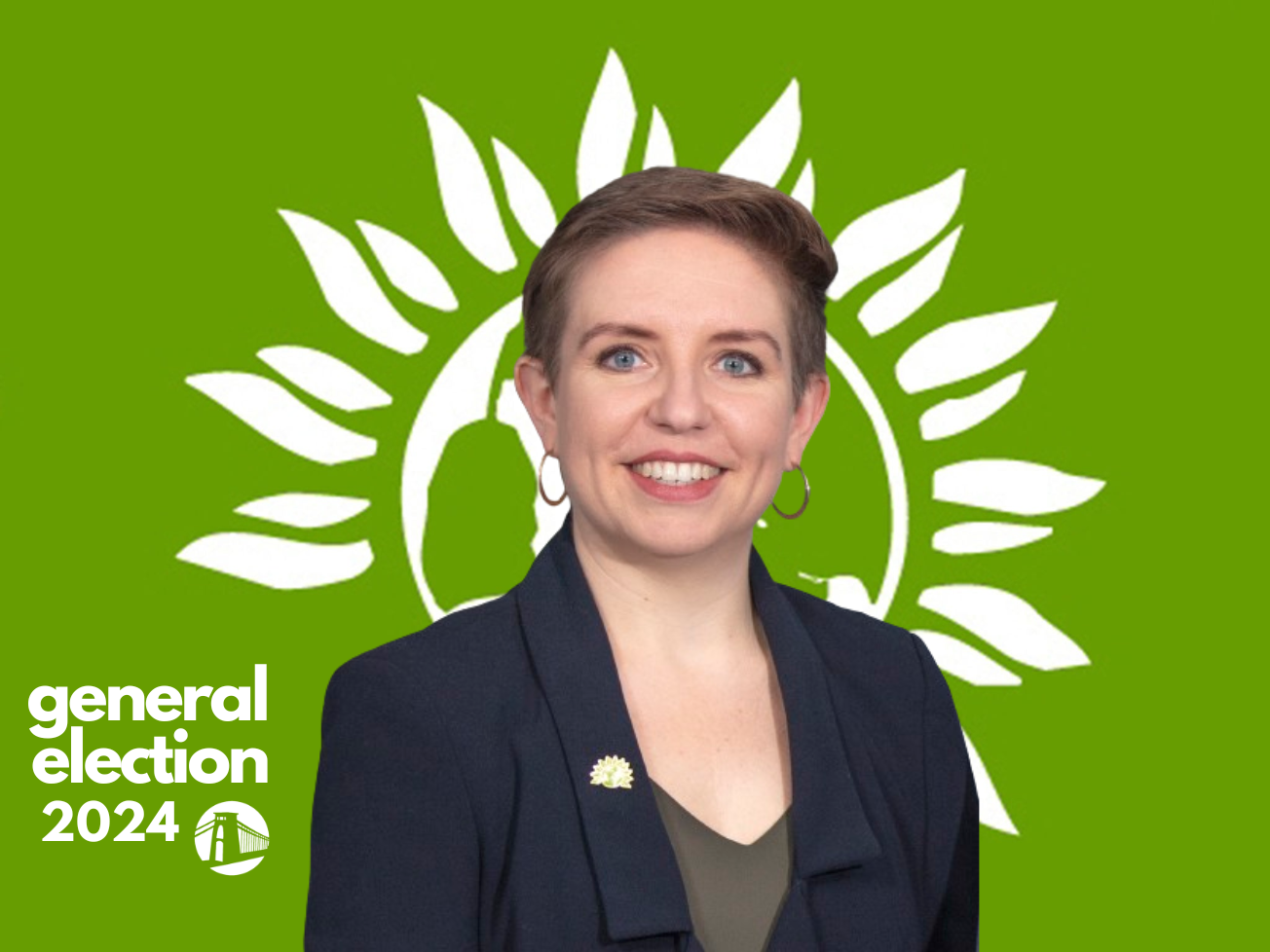By Roya Shahidi, Co-Editor-in-Chief
Epigram talks to Professor Evelyn Welch, Vice-Chancellor of the University of Bristol, about a range of issues, from the Marking and Assessment Boycott to the cost of living crisis.
It is the summer holidays and Bristol’s campus is much quieter than usual. However, behind the scenes, the University’s governance and administration teams are busy preparing for the 2023/24 academic year.
Amongst those working is Professor Evelyn Welch, the Vice-Chancellor (VC) of the University of Bristol. It is the start of Professor Evelyn Welch’s second year as the VC, a role which places her as the academic and administrative head of the University.
So, with the new academic year fast approaching, how is Evelyn feeling about what lies ahead?
‘I was incredibly excited about being the new Vice-Chancellor of the University of Bristol and actually the first female Vice-Chancellor of the University of Bristol. And, as I'm going into my second year, I think I'm even more excited. And that is because I've seen what an astonishing institution this is.'
‘Our students make a huge difference to the cultural life, to the economic life of the city and we contribute so much to the city of Bristol and the city of Bristol contributes so much to us.’
Reflecting on the previous year, she acknowledges that ‘it was not a year without its challenges.’
For the majority of students across the country, the primary academic concern has been the ongoing dispute between the UCU and the UCEA, which we saw culminate in the Marking and Assessment Boycott.
‘All I can do is apologise for how incredibly badly hit a small number – but even more than one is too many – of students who didn't get their work marked.’
The strike action has left many of us wondering: can we expect a resolution?

Evelyn responds to these concerns: ‘We are actually working really well locally on many of the issues that have been raised. But at national level, we have a situation in which inflation has hit universities hard and costs have gone up. But the tuition fee has remained at the level it was set in 2012, and staff will understandably also feel that they want to see an inflation-proofed pay rise.'
‘And with 147 institutions negotiating, the majority of which simply can't afford more than the five to eight percent that's already been offered, it doesn't look promising at the national level. But at local level, we talk regularly with our UCU members. Our UCU members are some of the most committed to students.'
‘[..] They genuinely believe that they're taking this action for the long-term future of the institution. So, we're trying to work locally to say, look, this is what we can offer.'
'And I am very pleased that both our major trade unions, Unison and UCU, agreed that after conversations with us and after saying we will really focus on technical things like the pay spine and where people start employment, that threats of industrial action at the start of term have now been called off.'
‘So, I'm certainly hopeful that by the start of term in late September, early October, work will be marked and that we will have a calmer, local start to the year.’
The cost of living crisis has also been at the forefront of student anxieties this year. We ask the VC what the University is doing to mitigate the effects of the crisis on students.
‘We’re maintaining a higher budget for our financial assistance fund with a one to two-day turnaround so we can get support to students fast who need it.’
‘Our cheaper food options, which have proved to be incredibly popular, will continue going forward, and we're continuing with the digital support fund which helps students with the cost of devices they need for their study.’
‘Last year, we supported just under 2,000 students with financial assistance and we spent just under 1.5 million last year compared to a previous budget of more like 5 to 600,000. So, we've almost tripled the amount that we put into financial assistance.’
She adds that this support will continue for the 2023/24 academic year.
‘Financial support is there. No one should think: ‘I can't ask for help.’ If you need help, ask for it. We are there to help and support you.’
Another issue that continues to affect Bristol students is the housing crisis. With an acute property shortage and soaring rent prices, we ask how the University plans to support students in regard to accommodation.
‘We're actually working, again, very closely with the Student Union, who have their own lettings agency and are really good at vetting the quality of landlords and their license registration.’
‘And this year, I'm really pleased to say that we comfortably met the accommodation guarantee. So, 90% of students who put Bristol as their first choice were able to get one of their preferred rooms, which is an increase of 10% (we had 80% last year).’
In response to the Newport controversy, Evelyn adds: ‘We have put together an accommodation offer in Newport, which I know caused a lot of controversy before, but we reserved just over 100 beds in Newport. 400 students registered an interest in it. Not simply because it's really good value, but also because they wanted to potentially be in a quieter city, and were not necessarily as interested in the social life of Bristol.’
Last year, Evelyn told Epigram that her top challenges were 'people, place and money.' So, have these changed this year?
‘I think I would now characterise them as community, communication and care.’
‘I read every NSS comment that every student made last year, and I would say that COVID and strike action were the top lines. But also, a sense of, students [saying] do you really care about me? Are you just taking my money? And why doesn't anyone know my name? Why won't you give me the flexibility that I need to be successful?’
‘We didn't do very well in the NSS. And we need to hear those voices, and we need to listen hard, so that our staff community and our student community, and our city community see ourselves as working together for each other's success, and not just the kind of University of Bristol's overall success.’
Further elaborating on the city community and its relationship with the University, we also discuss Bristol's 'complex relationship with its past', in particular, if there is an update on the renaming of university buildings.
Evelyn explains the complexity of the issue: '[...] having undertaken a consultation exercise, which 3,000 people answered, there was absolutely no consensus on what we should do.'
The building names public consultation has not reached an outcome yet.
'Whatever the outcome of names of buildings, we have to acknowledge those deep roots that the university has, both the positive things about the city's past, but the terrible, appalling things that took place that were funded through the transatlantic slave trade.'
Whilst we still do not know the outcome, Evelyn emphasises the importance of fostering communication with local communities. She mentions an 'incredibly powerful testimony' that she heard at an event held by the University of Bristol at the Rose Green Cricket Ground. It revealed:
'We [the University] are perceived to be racist, [...] perceived to be not really understanding the impact we have on local communities. But also what we could do if we put our intellectual and social weight behind real change, for racial and social justice.'
Evelyn adds that it is 'a really strong personal commitment' of hers that this conversation and these decisions are done 'collaboratively' with Afro-Caribbean communities 'within the University and the city'.
Moving ceremony to remember the 60th Anniversary of the #Bristol Bus Boycott. Thank you @rogerg44 for stressing how important it is that 'in this city we never forget the past, however painful.' We look to the future knowing how much more there is to do to ensure racial equity. pic.twitter.com/VCy7vA3lfz
— Evelyn Welch (@evelynwelch2013) August 30, 2023
Finally, our conversation with Evelyn ends on perhaps the most Bristol note of them all — a chat about the rain!
'The one thing I really noticed is that it rains more in Bristol than any other city in the UK that I have ever been in. Nobody told me how often I have to put up an umbrella!'
What do you think about the VC's priorities and aims this year? We want to hear from you!








